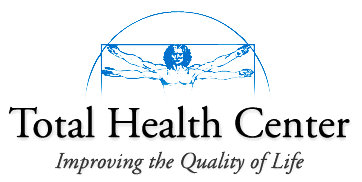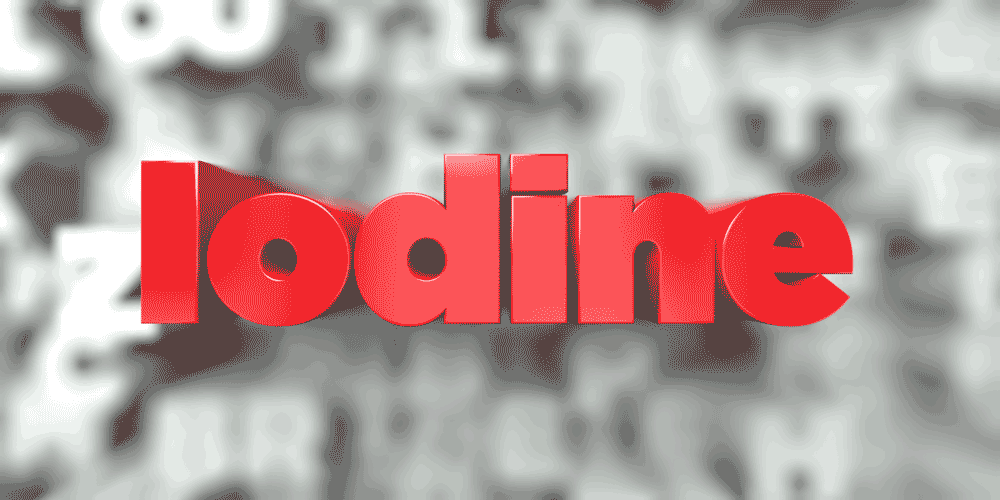Using iodine to treat Hashimoto’s and Graves’ disease is a highly debatable topic. This article explores differing opinions and clears up many of the misconceptions associated with this treatment.
What Is Iodine?
Iodine is a trace mineral found naturally in some foods and added to others. It is essential for metabolism and normal thyroid function. The idea iodine treatment is bad for a thyroid condition doesn’t make sense. Iodine is an essential thyroid nutrient, because the thyroid uses it, and tyrosine, to make thyroid hormone.
Are You Iodine Deficient?
Iodine deficiency is more common than you might think. I test patients with thyroid disorders using an iodine load test and 90% of patients show deficiency.
The New England Journal of Medicine states people in the US have “marginal” iodine levels based on data from the International Council for the Control of Iodine Deficiency Disorder and the World Health Organization (WHO).
The Role of Halogens
Chemically, iodine is a halogen. Halogens are a group of salt-producing elements. Other halogens include fluorine (F), chlorine (Cl), and bromine (Br), astatine (At), and tennessine (Ts). Astatine and tennessine are extremely rare, but fluorine, chlorine and bromine are very abundant.
Unfortunately, in today’s chemically-laden world we’re overexposed to bromine, fluorine, and chlorine. Bromine is commonly present in grains, bleached flour, sodas, nuts and oils as well as several plant foods. It is also in some pesticides.
Fluorine and chlorine are found in unfiltered drinking water. Fluorine may also appear in toothpastes, non-stick pans, and some prescription medications.
The problem with exposure to many halogens is they all use the same receptors in the thyroid and stomach. Essentially, they compete with iodine, the receptors fill with other halogens, and the thyroid suffers.
Thyroid deficiency can also cause the iodide pump in the stomach to function inefficiently. The iodide pump co-transports sodium and iodine into the thyroid follicles.
Phobia or Uninformed?
Iodine treatment for thyroid disease is very controversial in the medical and alternative worlds however I use it successfully as do many other doctors. For instance, Dr. David Brownstein uses iodine to improve thyroid function in Graves and Hashimoto’s patients.
However, it is very important you choose a doctor who knows how to rid the body of halides (halogen bound with another element) and the proper protocol for iodine supplementation.
Iodine supplementation causes changes in the body which well-meaning, but uninformed practitioners may not understand. For instance, supplementing with iodine causes an increase in TSH (thyroid stimulating hormone, but it is not hyperthyroidism. It is a normal process that occurs in iodine deficient patients to bind the iodine with thyroglobulin for hormone production.
Patients can have elevated TSH levels for many months without clinical signs of hypothyroidism. A lab test to ensure Free T3 and Free T4 levels are within range can verify if any problems exist.
Selenium May Play A Role
Much of the controversy surrounding iodine supplementation is too much iodine can increase the autoimmune attack on the thyroid and one study showed restricting iodine helped Hashimoto’s patients regain thyroid function. However, like everything else in the body, it appears thyroid function is not simple.
Some evidence suggests iodine may only be an issue for thyroid autoimmune patients if they’re also selenium deficient. Selenium appears to protect patients from iodine toxicity which can trigger autoimmune disease flares.
Consequently, testing for iodine and selenium deficiency is very important before establishing a treatment plan. Hashimoto’s and Grave’s patients may not tolerate iodine supplementation without sufficient selenium too.
Determining iodine levels through test involves taking selenium throughout the protocol to dampen the autoimmune reaction in patients. Your practitioner may start you on low dose kelp tablets and then increase the dosage very, very slowly until you reach the optimal level to restore your iodine levels. Self-supplementation is not recommended.
*****
Iodine and selenium insufficiency are just a few factors that can contribute to thyroid problems. It is very important you work with a qualified functional practitioner for testing and to create an effective treatment protocol.
You are unique, so a tailored treatment plan is essential.
Mark A. Scott, D.C., C.N.S., C.F.M.P.
Get more information on natural thyroid treatment or schedule a free thyroid consultation with Dr. Mark A. Scott of Total Health Care Virginia Beach.

